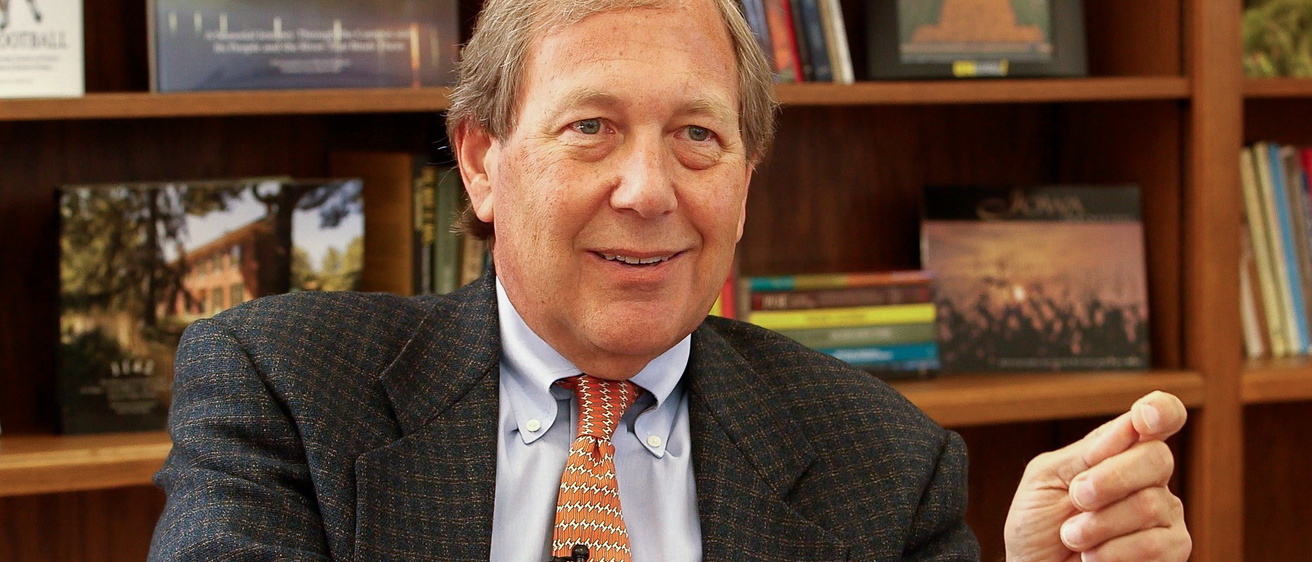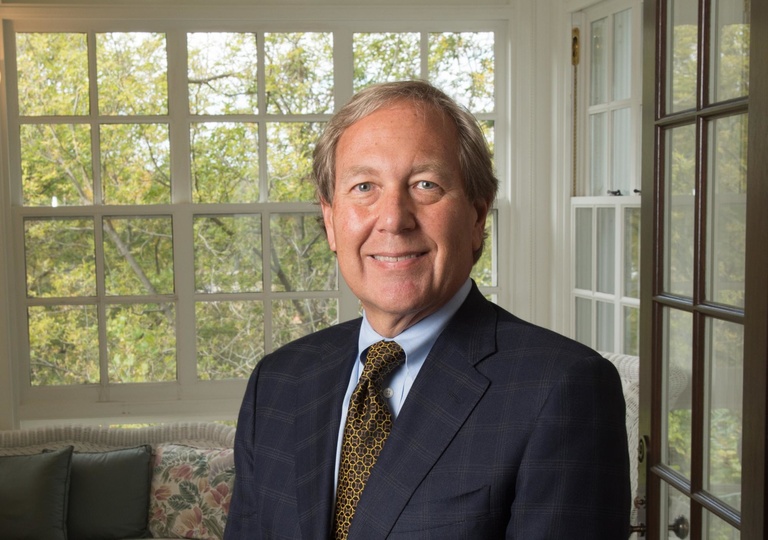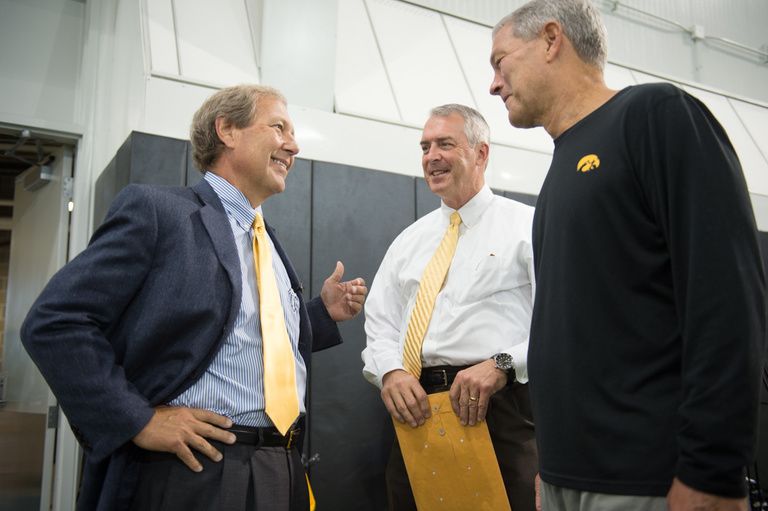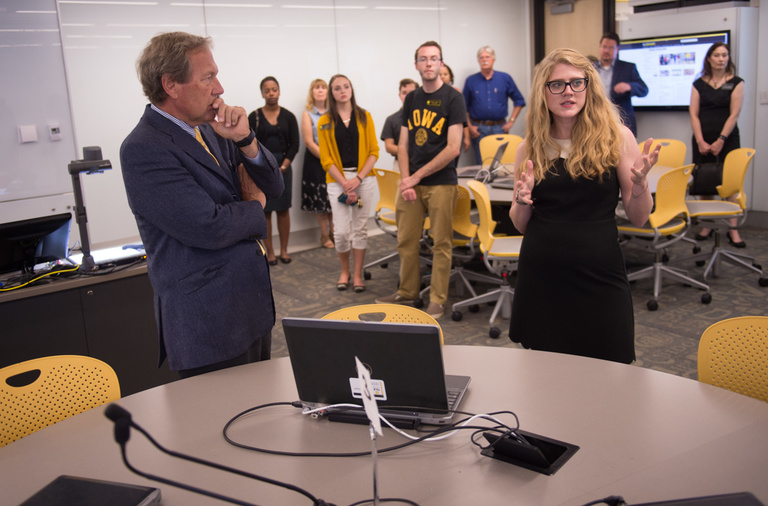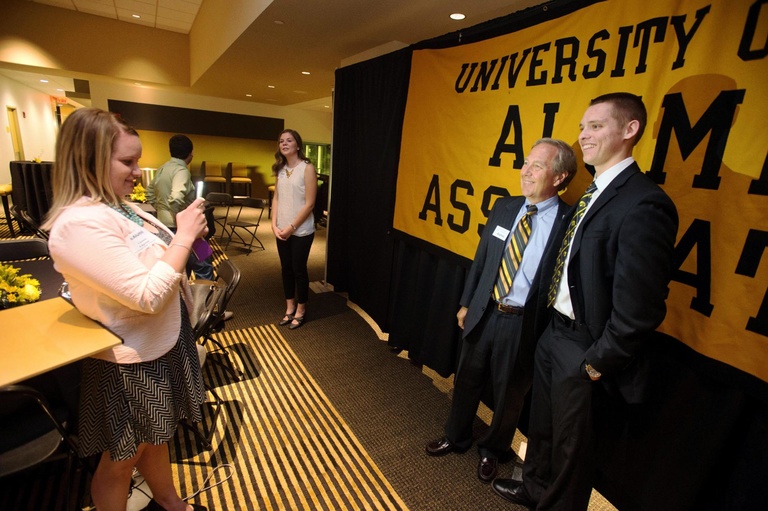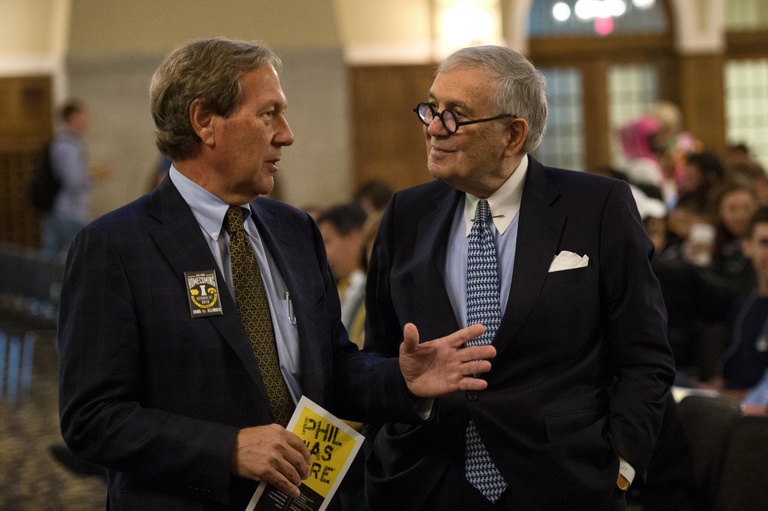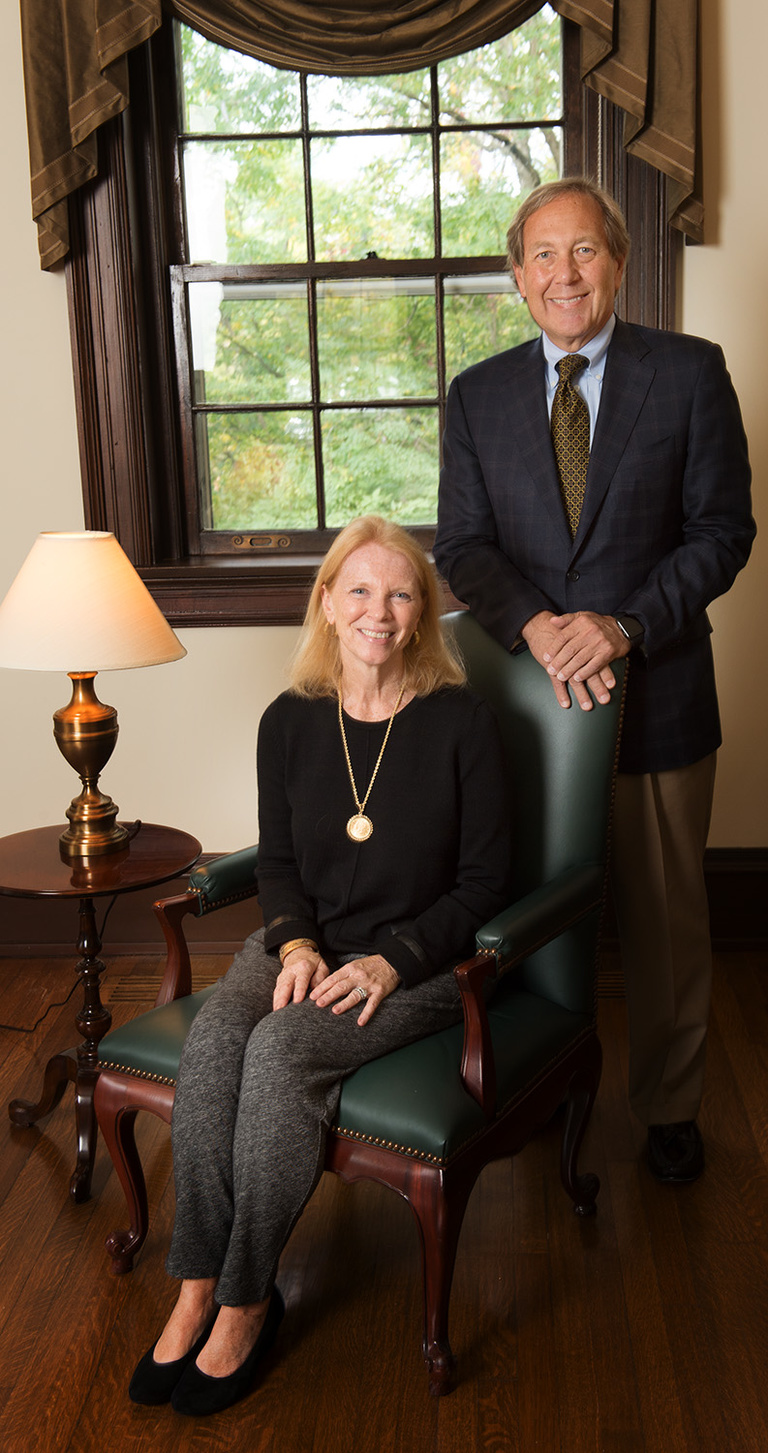Bruce Harreld’s tenure as University of Iowa president may have just begun, but he has already spent countless hours getting to know the campus by attending a variety of events and meeting with people one on one. He says he looks forward to meeting many more before the end of the calendar year and together mapping out a course for success. In turn, he invites the UI community to get to know him.
After following in his father’s footsteps by earning an engineering degree from Purdue University, Harreld switched course to business and pursued an MBA at Harvard University. Since then, he has held leadership positions with Boston Consulting Group, Kraft General Foods, Boston Market Co., and IBM, where he helped to reshape the company in the mid-1990s. He joined the Harvard Business School faculty in 2008 with dual appointments in the entrepreneurial and strategy units.
In an October interview with Kathryn Howe of the UI Alumni Association, Harreld spoke about growing up in small-town Ohio and attending a large public university, his early impressions of the University of Iowa, and the best thing that's happened to him. [Ed. note: For the full feature story from Howe’s interview, see the December issue of Iowa Alumni Magazine—both in print and at www.iowalum.com/magazine.]
Tell us about your childhood.
I grew up in Gallipolis, Ohio, a town in the southernmost portion of Ohio with a population of about 7,500. My parents were exceedingly well educated—both were first-generation college graduates—and it was a wonderful environment. My father was a mechanical engineer from Purdue University, and he built power plants across the Midwest for the Atomic Energy Commission. My mother’s parents emigrated from Romania; she earned a master’s degree in education and was an educator all of her life. I have a brother nine years younger, whom I’m very close to. We had some great teachers and some very small class sizes, as you might imagine.
What was your Purdue education like?
It was wonderful and interesting and exciting. I think for most undergraduate students, college is their first time away from home, but it’s also the first formative years spent on your own. For me, coming from a very small community to a huge campus full of very talented people was a real struggle early on. I think my first-year calculus class had three times as many students as my entire high school graduating class. Like most students, I didn’t know how to manage my own schedule, but fortunately there were also small courses at Purdue where I could easily engage.
Once I got settled in and connected with faculty members, my Purdue education really helped me develop my analytical and leadership skills. I ran for freshman class president, and although I was defeated big time, I started meeting people and forming a social network. I got into a fraternity, Sigma Chi, and took on leadership roles there, including president of the house. Those were my first steps in managing and leading peers.
What did you plan to do with your engineering degree?
Honestly, I didn’t know. My father died in the spring of my sophomore year, and it was traumatic for me. I knew he was ill, but then one evening I got a call that he had passed away. Fortunately, several people from the fraternity went back home with me. They really banded around me and helped me through that transition. Needless to say, my grades really suffered. I was trying to play golf as well as study engineering, and things fell apart. I had to pick myself back up and get my grades up.
By junior year, I decided that I should go on to graduate school. I started course work for a master’s degree in industrial engineering, but I ended up taking a year off and working for Sigma Chi International Fraternity. I went around the country and helped improve chapters. Actually, I had the unfortunate responsibility of dealing with a lot of problem chapters.
How did you like teaching college students?
It was wonderful. I loved the classroom; I loved the one-on-one—or even five-on-one—project-based mentoring I did with students on an almost daily basis. In fact, my wife and I loved our time in Cambridge, and we thought that if the right opportunity emerged, it would be great to help a public research institution.
What are your early impressions of the University of Iowa?
The University of Iowa has an incredible history, and I’ve never seen so much enthusiasm. It has incredible opportunity, supporting alumni, and a great academic base. And yet there’s pressure around it at the state and federal levels. I think it’s something to be protected, to be relished, but I also think it’s something that should be polished and pushed as a core asset in our society.
What’s the best thing that’s happened to you?
That’s easy: About 44 years ago, I met my wife, Mary. We got married 42 years ago, and she has been the one constant through my life. She’s been the glue, the pillar for the family.
Where did you get married?
We got married in Pittsburgh. She’s from Mount Lebanon, which is a suburb of Pittsburgh. She graduated from Purdue with a degree in interior design and went to work at Jordan Marsh, a major retailer in downtown Boston, while I went to graduate school. We stayed in Boston and then I worked while she went to law school. Then we moved to Germany to help build an office for Boston Consulting Group in Munich and lived there for three and a half years. Our first daughter was born in Munich.
Tell us about your kids.
We have four: Sara, Kelly, Christopher (or Chris), and Natalie. They all have graduate degrees and are totally different. One went to Pomona, one to Lewis and Clark, one to Vanderbilt, and one to Claremont McKenna. All are out of school now except for Natalie, who is starting a Ph.D. in leadership at King’s College in London.
